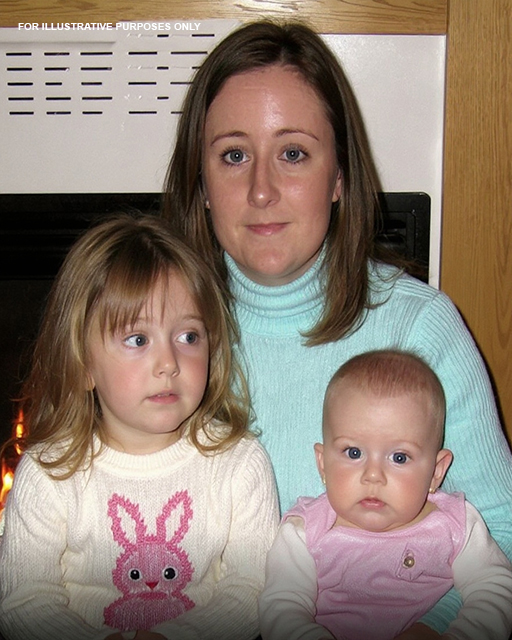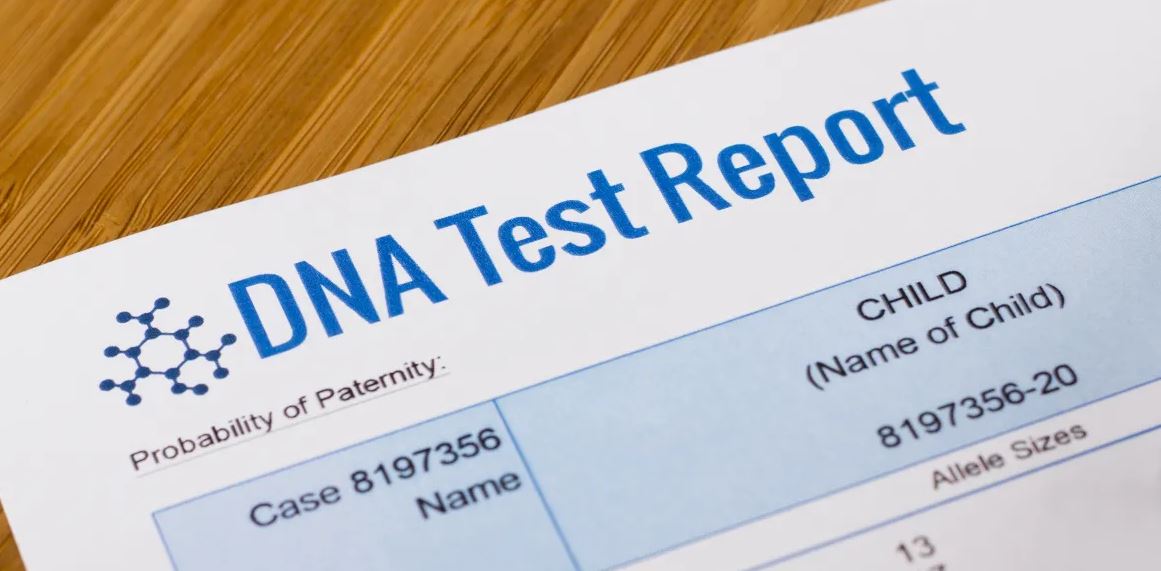
Mom and I were never close. Growing up, she always seemed like a stranger who just happened to live in the same house. We shared meals, shared space, but rarely shared words. She wasn’t cruel, just cold, distant, and wrapped in secrets I never understood. I spent my whole life trying to reach her, and she spent hers keeping me at arm’s length.
So when she whispered those final words, “Find your sister,” I thought I’d misheard.
A sister? That couldn’t be right. I was an only child. I’d always been an only child.
Her voice was so faint I had to lean close to catch it again. Her hand trembled in mine, frail and paper-thin. “Find her,” she rasped, her eyes glassy, unfocused. “Please.” Then, with a soft exhale, she was gone.
For a moment, I just sat there, frozen. The hospital monitor beeped steadily, oblivious to the world collapsing around me. I felt the weight of her words pressing on my chest, louder than the sound of my own heartbeat.
Find your sister.
There was no sister.
At least… There wasn’t supposed to be.
–––
The days that followed were a blur of paperwork, condolences, and phone calls from people who barely knew her. Mom hadn’t had many friends, and the few relatives we did have were scattered across the country. I handled everything alone, like I always had.
When I went to clean out her house, the air inside felt heavy like the walls had absorbed decades of unspoken words. Dust lay thick on everything, and the faint smell of her lavender soap lingered.
I started in her bedroom, pulling clothes from the closet, sorting through drawers. Most of it was ordinary: scarves, old receipts, a broken wristwatch. But tucked at the very back of her closet was a metal box one I’d never seen before. It was heavy, sealed with a small lock.
I found the key taped to the underside of her dresser. She’d always been meticulous like that.
Inside the box were papers, hospital forms, letters, and photographs, all yellowed with age. My hands shook as I lifted them out, one by one.
The first thing I noticed was a birth certificate. My eyes darted to the name: Mara Bennett.
That was my mother’s name.
But underneath, listed under children, there was something that made my stomach twist.
Twin birth. Female.
My name, Olivia Bennett, was written first. And next to it, another name I’d never heard before.
Grace Bennett.
A twin.
My chest went tight. I stared at the document, half expecting the ink to rearrange itself into something logical. But no. There it was, in black and white. My mother had given birth to twin daughters.
And she’d never told me.
–––
For the rest of the day, I sat on the bedroom floor surrounded by papers, piecing together fragments of a story I didn’t understand. There were hospital discharge forms, a photo of two infants wrapped in identical blankets, and an envelope addressed to my mother from something called Havenbrook Adoption Agency.
My heart pounded as I opened it. Inside was a letter dated the same year I was born.
Dear Mrs. Bennett,
This letter confirms receipt of your relinquishment documents for the adoption of infant “Baby B.” Per your request, all identifying information has been sealed. Should you wish to open the records in the future, you may submit a formal petition to the court.
I dropped the letter, my mind reeling.
She’d given my twin sister away.
I didn’t know whether to feel angry or heartbroken. All my life, I’d wondered why Mom had been so detached, why she always looked at me like I was both too much and not enough. Now I understand. Every time she looked at me, she probably saw the baby she didn’t keep.
–––
I spent the next few days digging deeper. I called the hospital listed on the birth certificate, but they said the records were archived and could take weeks to retrieve. I reached out to Havenbrook, but they told me the same thing: the adoption was closed, and without court approval, they couldn’t release any information.
But I wasn’t giving up.
For the first time in years, I felt something burning inside me, a need to know. To understand who Grace was and why Mom had sent her away.
That night, I searched online. I found adoption forums, old newspaper archives, and even Facebook groups dedicated to reuniting separated twins. I posted a short message, attaching a scanned copy of my baby photo and the hospital name.
A few days later, I got a message from someone named Hannah Lee, who ran a volunteer group that helped adoptees find birth families. She asked if we could talk on the phone.
When I answered, her voice was calm, steady, the kind of voice you’d trust with your secrets.
“I saw your post,” she said. “You mentioned a twin adoption in 1973, at Mercy General?”
“Yes,” I said. “My mother was Mara Bennett.”
She was silent for a moment. “That name rings a bell. Give me a day or two, I’ll see what I can find.”
–––
Those next forty-eight hours felt like weeks. I barely slept. I kept replaying my mother’s final moments in my head — wondering if she’d regretted it all these years, if that’s why she’d told me to find Grace. Maybe she finally wanted to make peace before she left this world.
When Hannah called again, her voice was trembling slightly.
“Olivia,” she said. “I think I found her.”
My heart stopped.
“There was an adoption record under the name ‘Baby B’ — sealed, but matched to a family named Carter. The baby’s name was changed to Rachel Carter. She was adopted by a couple from Ohio. I can’t give you their address without their consent, but…”
She hesitated.
“But?”
“She’s been trying to find her birth family, too.”
I felt my throat tighten. “She has?”
“Yes,” Hannah said softly. “She submitted a DNA sample to one of the ancestry databases. If you’re willing, you could do the same. It might confirm the match.”
I agreed instantly. I ordered the test that night and mailed it off the next morning, my hands shaking as I dropped the envelope into the mailbox.

–––
Three weeks later, I got the notification: Match found — 99.98% probability of sibling relationship.
Her name appeared on the screen like a miracle: Rachel Carter.
I sat at my kitchen table for a long time, just staring at it. I had a sister. A twin. A living, breathing person out there who shared my face, my DNA, my history.
Hannah helped us exchange emails first. Rachel’s first message was simple:
Hi Olivia,
I don’t even know how to start this. I’ve wondered about you my entire life. I can’t believe you’re real.
I must have read it a dozen times before replying.
We started emailing every day — long letters filled with stories of our childhoods, our families, our favorite foods. It was strange how similar we were. We both loved the same music, both hated thunderstorms, and both had the same nervous habit of twisting our hair when anxious.
And then we shared photos.
When her picture appeared on my screen, my breath caught. It was like looking in a mirror, same eyes, same smile, even the same faint scar on her chin.
It felt surreal.
After a month of emails and calls, we decided to meet.
–––
She suggested meeting halfway, at a café in Chicago. I drove six hours that morning, my stomach churning with nerves. When I walked in, I spotted her instantly. She was sitting by the window, tapping her fingers on a coffee cup. And when she looked up, our eyes met identical shades of green, and she smiled.
We didn’t say anything for a moment. We just stood there, staring at each other, both laughing and crying at the same time. Then she stepped forward and hugged me — a long, trembling hug that felt like finding something I didn’t know I’d lost.
When we finally sat down, we talked for hours.
She told me about her life, how she’d grown up in a small town with loving parents who couldn’t have children of their own. She’d always known she was adopted, but her parents had died before she could ask about her birth family. It wasn’t until she found the old adoption papers last year that she started looking.
When I told her about Mom about her coldness, her distance, and her final words, Rachel’s eyes softened.
“She must have loved you,” she said quietly. “Even if she couldn’t show it.”
I shook my head. “If she loved me, why did she give you away? Why keep one and not the other?”
Rachel hesitated, then pulled something from her bag, a worn envelope. “I think she didn’t have a choice,” she said, sliding it across the table. “You should see this.”
Inside was a letter, written in Mom’s familiar handwriting.
To my daughters —
If you ever find each other, please know that I loved you both more than anything. When you were born, I was alone. Your father had left, and I had no money, no family to turn to. The doctors said you were both weak and that one of you might not survive without specialized care. I couldn’t afford it. A social worker told me about a couple who could help — who could give one of you the life I couldn’t. I didn’t want to choose, but I had to.
Not a day has passed that I haven’t thought of you both. I know you’ll hate me, and I deserve that. But I hope one day, you’ll understand.
The words blurred as tears filled my eyes.
All those years, I’d resented her thinking she didn’t care, thinking I was never enough; she’d been carrying a burden I couldn’t imagine. She hadn’t been cold out of cruelty. She’d been broken by the weight of her own choices.
Rachel reached across the table and took my hand. “She wanted you to find me,” she said softly. “That’s why she told you.”
I nodded, tears spilling down my cheeks. “Yeah. I think she did.”
–––
After that day, Rachel and I stayed in touch constantly. We started visiting each other’s homes, spending holidays together, filling in the years we’d lost.
Sometimes, when I looked at her — at this stranger who should have been my childhood companion — I felt grief for the time we’d missed. But mostly, I felt grateful.
Mom had spent her life locked behind secrets, but with her final breath, she’d opened the door to something beautiful — a second chance, a connection I never knew existed.
I still visit her grave sometimes, especially when Rachel and I are together. We bring flowers and sit in silence for a while.
And though she never said it in life, I think I finally understand what she meant.
“Find your sister” wasn’t just a request.
It was an apology.
And a gift — the last one she ever gave me.